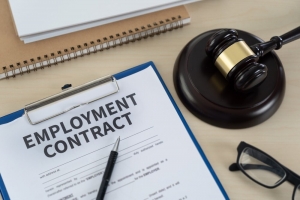It is very painful for an owner, employee, and customer to deal with a crime committed on the business property. Vandalism, burglary, violent crime, or fraud can create havoc in your life even after the crime.
While planning out the recovery requires simultaneous attention to physical and emotional damage, safety and reassurance for those involved must also be kept in mind.
In this article, we will provide guidance about the necessary steps businesses must take to prevent and move on after a crime.
Make Sure Everybody's Safe
In the case of such crimes, the very first thing to do is ensure the safety of everyone on the premises. Call the emergency services immediately if there have been any injuries.
Contact the police straight after that to secure the scene and start their investigations. Once the authorities have arrived, cooperate fully with them. Preserve any evidence that may be useful in the investigation. Such evidence includes videos or camera recordings and statements from witnesses.
Hire Professionals for Biohazard Cleaning
In cases of violent crimes having caused bodily fluids, hazardous materials, or property damage, you must hire professional biohazard cleaning services. Crime scenes can pose health risks since bloodborne pathogens, the presence of bacteria, and other materials, that may be hazardous. Improper crime scene cleaning will induce contamination and more long-term health problems for your employees and customers.
Professional biohazard cleaners get training in safe operations with hazardous materials and have the right equipment and industry-cleaning solutions to make sure your property is completely decontaminated. Furthermore, they follow legal and regulatory requirements for the proper disposal of biohazardous waste. This has the added support of protecting your business from potential liability issues. Furthermore, hiring professionals for the cleanup allows business owners and their employees to concentrate on recovery rather than investigate the traumatic process of crime clean-up.
Get in Touch with Your Insurance Provider
This is one of the very first steps in recovering from the financial blow. As soon as you have notified your insurance carrier of the incident at your business, make sure you document it all in writing, including police reports, pictures of the damaged property, and the list of items stolen. Review the insurance policy to see what coverage it provides.
Most policies will cover property damage, stolen inventory, business interruption, and liability claims. The sooner you file, the sooner you can get different kinds of compensation depending on your case, including repairs and reimbursement for lost business.
Finalize Security Measures for the Property
One of the most critical immediate actions following a crime is to limit further damages or guard against potential safety risks. You may need to replace broken locks, windows, or doors depending on the nature of the incident. Damaged entrance and exit points often need to be boarded up until repairs can be completed.
Upgrading security measures, like alarm systems, cameras, and better lighting, can deter future criminal activity. Some situations necessitate a security guard hire for added protection. This act of securing the property not only limits any more potential damage but also reassures employees, and customers that their safety is a priority.
Let Employees and Customers Know
If any crime occurs on the property, employees and customers will feel uncertain about their safety. To keep everyone's trust, communicate openly with employees about what happened as soon as possible, what will occur, and what new security measures will be taken. If necessary, offer support measures and counseling.
Denote any changes to services customers may notice if all the crime affects them. Email, or use social media or signage at the site to reassure them that measures are being taken to restore operations and increase their safety.
Restore Business Operations
Resuming full business operations is critical for financial survival. Businesses will need to clean and repair damaged property, replace stolen inventory or equipment, and cooperate with any ongoing investigations.
In some cases, a temporary relocation of business operations may need to happen, and customers must be informed of this. Business interruption is an insurance policy that will compensate for lost income due to the closure of a business in response to loss from the perils covered.
Evaluation and Restoration of the Security Regime
Under an effective recovery strategy, businesses must carry out a thorough review of the security measures. This might involve the installation or upgrade of different types of security cameras, better lighting around the premises, and implementing an access control system like keycards or biometric scanners.
Employees must also undergo training on crime prevention techniques like identifying suspicious activities. Involving the local police department in sponsoring crime prevention programs can provide protection and support. A solid security system works to inhibit criminal activity; additionally, it brings peace of mind to employees and customers alike.
Seek Legal Help
Depending on the crimes committed, these actions can have possible legal ramifications. Consulting attorneys may assist business owners in identifying their rights and obligations. Legal representatives can help with the issues of lawsuits relating to insurance claims and disputes and given the liability, help in the filing of a lawsuit for example for damages due to vandalism or theft.
Similarly, lawyers can help with revisions of company policies and contracts to make them less susceptible to future legal risks.
Address Employee and Customer Concerns
The psychological aftermath of a crime can be just as severe as the physical impact. Employees and customers may not feel comfortable returning to the business premises. Thus, providing counseling services to the employees affected can help. If necessary, calling for meetings with all parties concerned to discuss apprehensions and comfort in reinforcing security could begin restoring confidence.
With new communication and security infrastructure in place, lingering doubts vanish, providing customers with a sense of safety that was lost.
Leverage Support, Both from the Community and Business
Local communities often come together to give support to businesses affected by crime. Business owners should reach out to their neighboring businesses to share experiences and best practices; local law enforcement might be approached for safety workshops and increased patrols. Business associations or chambers of commerce may offer financial assistance and networking.
Customers may also be engaged by organizers through fundraising efforts or promotional events to re-establish support. While building a positive reputation, involvement in the community cultivates long-term loyalty.






